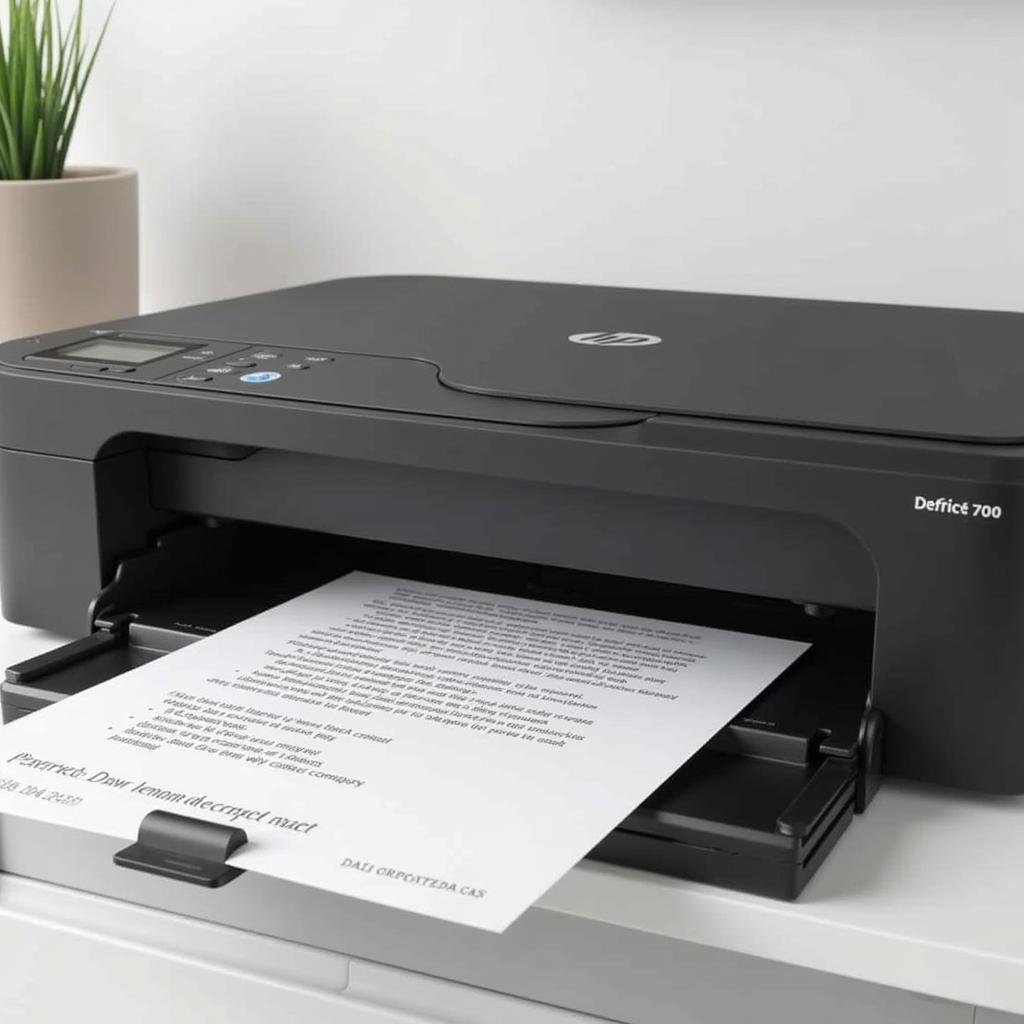Rinda Scan Tool Adapters are essential for any automotive professional or enthusiast who wants to diagnose and repair vehicles effectively. These adapters allow you to connect your scan tool to various vehicle systems, providing access to crucial data and allowing you to perform a wide range of diagnostic functions. In this comprehensive guide, we’ll explore everything you need to know about Rinda scan tool adapters, from understanding their importance to selecting the right adapter for your needs.
What Are Rinda Scan Tool Adapters?
Rinda scan tool adapters are specialized connectors that bridge the gap between your scan tool and a vehicle’s diagnostic port. They act as intermediaries, translating the signals between your diagnostic equipment and the vehicle’s electronic control units (ECUs). This translation process ensures that your scan tool can communicate with the vehicle’s systems properly, allowing you to retrieve diagnostic data, perform tests, and clear trouble codes.
Why Are Rinda Scan Tool Adapters Necessary?
Vehicle manufacturers utilize various communication protocols and connector types for their diagnostic systems. Rinda scan tool adapters play a crucial role in ensuring compatibility between different scan tools and vehicles. They enable technicians and enthusiasts to diagnose a wide range of vehicles, from domestic to foreign and even those equipped with advanced electronic systems.
Types of Rinda Scan Tool Adapters
Rinda offers a diverse range of scan tool adapters designed to cater to specific needs and vehicle models. Here’s a breakdown of some common types:
1. OBDII Adapters:
These adapters are compatible with vehicles manufactured after 1996 in the United States, 2001 in Europe, and 2003 in Asia. They utilize the standard OBDII (On-Board Diagnostics II) protocol, allowing you to access and analyze engine performance data, emissions, and other crucial information.
2. J1939 Adapters:
These adapters are specifically designed for heavy-duty vehicles, such as trucks and buses, that utilize the J1939 protocol. They provide access to data related to engine parameters, transmission, braking systems, and more.
3. CAN Bus Adapters:
CAN (Controller Area Network) bus adapters are used to communicate with vehicles that employ the CAN protocol, which is widely used in modern vehicles. They provide access to a broader range of vehicle systems, including ABS, airbags, and climate control.
4. Multiplexer Adapters:
Multiplexer adapters are versatile and can handle multiple protocols, often supporting OBDII, J1939, and CAN. These adapters offer flexibility and convenience for working with diverse vehicle fleets.
Choosing the Right Rinda Scan Tool Adapter
Selecting the right Rinda scan tool adapter for your needs depends on several factors:
- Vehicle Year, Make, and Model: Determine the communication protocol and connector type used in your target vehicle.
- Scan Tool Compatibility: Ensure that the adapter is compatible with your scan tool.
- Specific Diagnostic Functions: Consider the types of diagnostic functions you intend to perform.
- Budget: Rinda adapters vary in price depending on their features and compatibility.
Benefits of Using Rinda Scan Tool Adapters
- Enhanced Diagnostic Capabilities: Rinda adapters enable you to access a wide range of diagnostic information, helping you identify and troubleshoot issues effectively.
- Increased Vehicle Coverage: They expand the range of vehicles you can diagnose, ensuring compatibility with various makes and models.
- Improved Efficiency: Rinda adapters streamline the diagnostic process, saving you time and effort.
- Reliable Performance: They are built with high-quality materials and components, ensuring reliable and accurate data transmission.
Expert Opinion
“Rinda scan tool adapters are indispensable tools for any automotive professional. Their compatibility, reliability, and versatility make them a valuable asset for any workshop or garage,” says [Name of expert], a seasoned automotive technician with over 20 years of experience.
Frequently Asked Questions (FAQ)
Q: Can I use a single Rinda adapter for multiple vehicles?
A: Yes, you can use certain Rinda adapters that support multiple protocols for various vehicle models. However, it’s essential to verify adapter compatibility with your target vehicles before purchase.
Q: What are the common issues with Rinda scan tool adapters?
A: Some common issues include adapter incompatibility with specific vehicles or scan tools, faulty connectors, and signal interference.
Q: How do I troubleshoot Rinda adapter problems?
A: If you encounter problems with your Rinda adapter, you can try reconnecting it, checking for loose connections, updating scan tool software, and ensuring proper vehicle power supply.
Q: Where can I purchase Rinda scan tool adapters?
A: Rinda scan tool adapters are available from authorized dealers and online retailers specializing in automotive diagnostic equipment.
Conclusion
Rinda scan tool adapters are essential for any automotive professional who wants to perform comprehensive vehicle diagnostics. By understanding their importance, types, and selection factors, you can ensure you choose the right adapter to meet your specific needs and enhance your diagnostic capabilities.
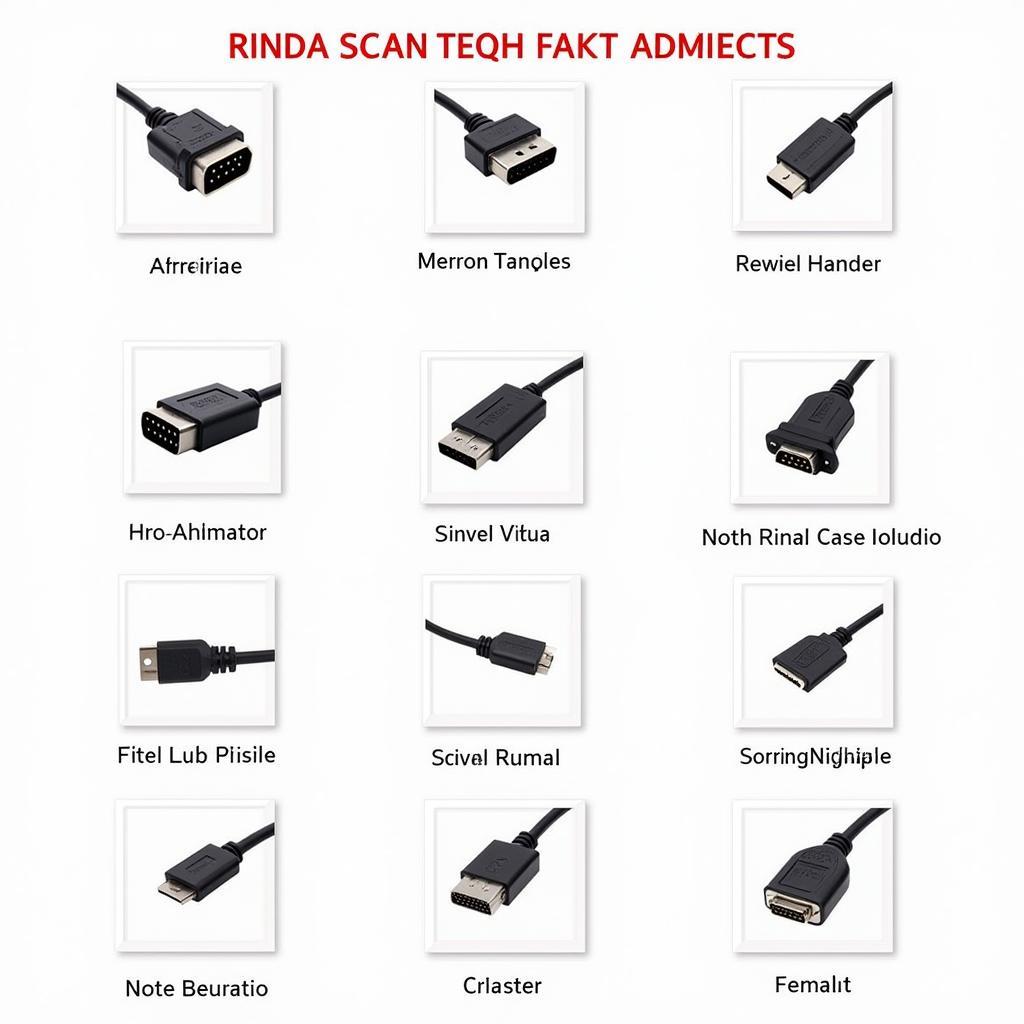 Rinda Scan Tool Adapters for Different Vehicles
Rinda Scan Tool Adapters for Different Vehicles
If you have any questions or need assistance, please feel free to contact our team. We are available 24/7 to provide expert support and guidance.
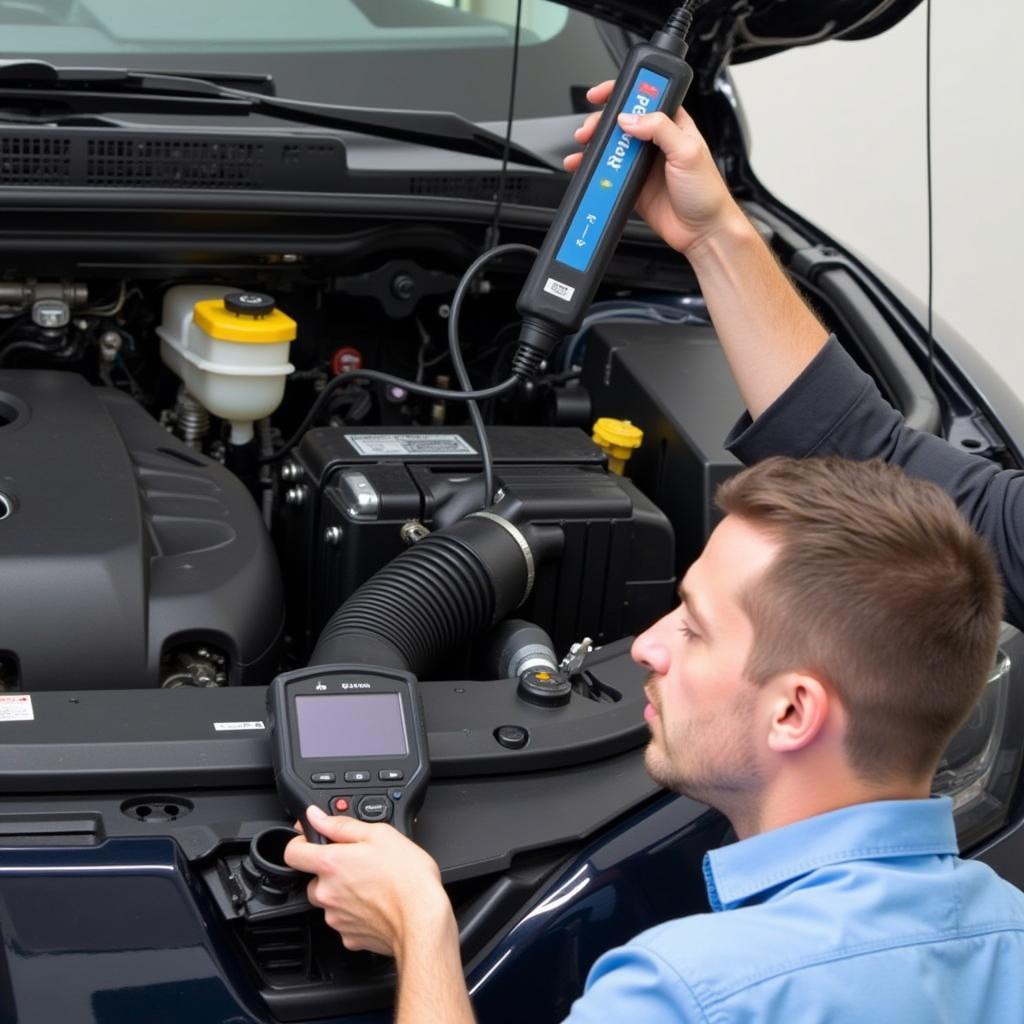 Using a Rinda Scan Tool Adapter
Using a Rinda Scan Tool Adapter
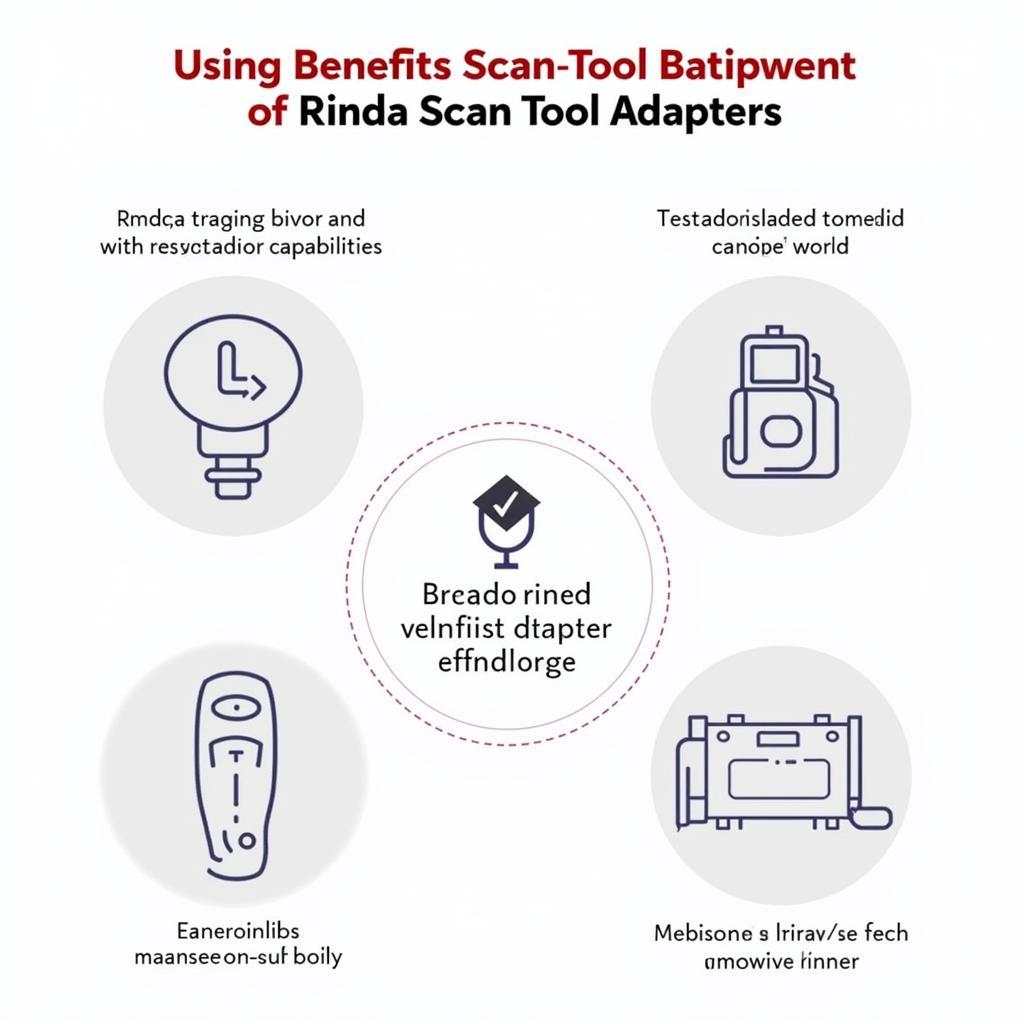 Benefits of Using Rinda Scan Tool Adapters
Benefits of Using Rinda Scan Tool Adapters
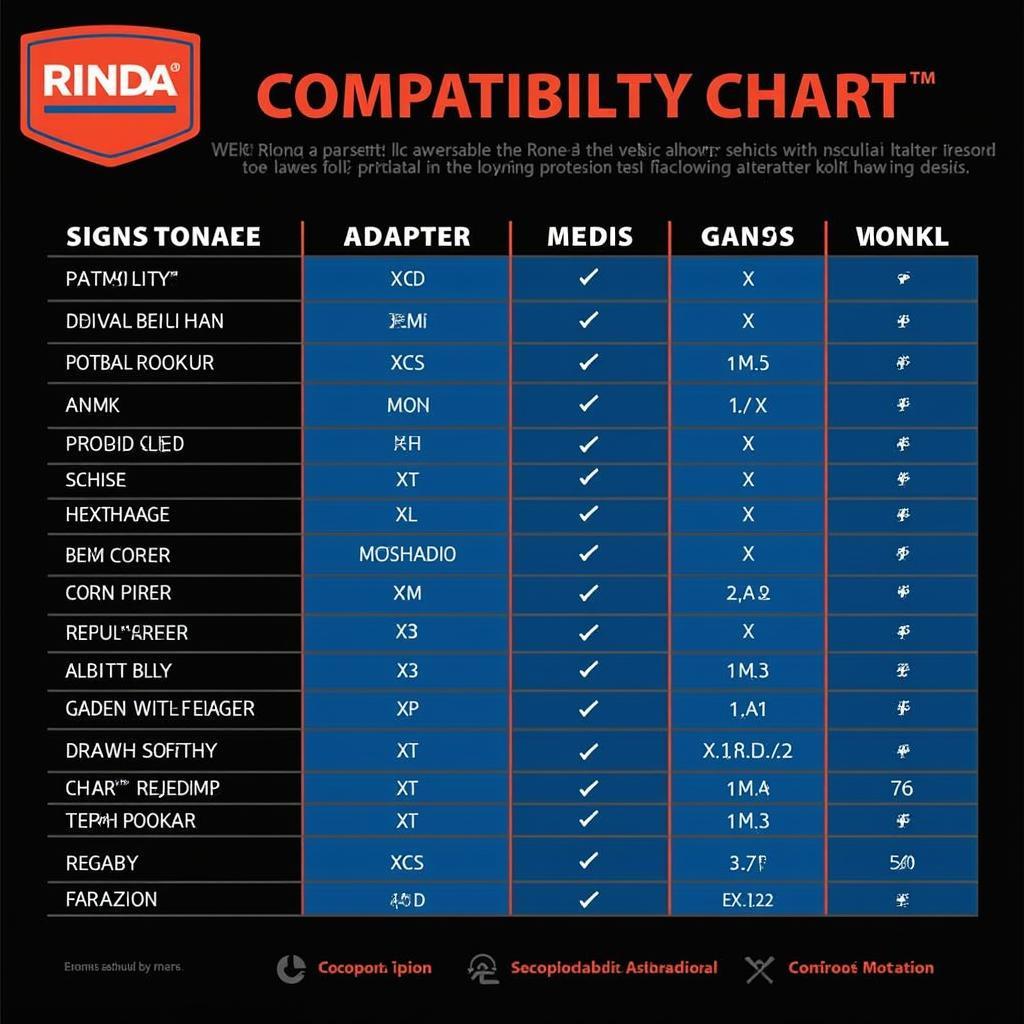 Rinda Scan Tool Adapter Compatibility Chart
Rinda Scan Tool Adapter Compatibility Chart
Contact Us:
WhatsApp: +1(641)206-8880
Email: [email protected]
Address: 276 Reock St, City of Orange, NJ 07050, United States
Disclaimer: This blog post is intended for informational purposes only and does not constitute professional advice. Always consult with a qualified automotive technician for any diagnostic or repair needs.
